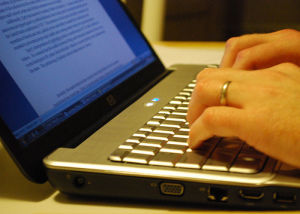Most journalists realise early in their careers that even 24 hours in a day may not be enough. From following a lead, digging up a story, interviewing sources, writing the piece to editing and checking facts, they do it all. In addition, they are usually working on multiple pieces at the same time. Effective time management is thus essential. Namrata Nanda talks about ways in which journalists can manage their time better.
As a journalist, you will often find yourself chasing several deadlines at once. This is because you are continually handling numerous stories and assignments.
If you’re not good at managing your time, you’re likely to miss deadlines, be guilty of shoddy penmanship or worse – inaccurate data getting published. Here’s what to do to improve those skills.
Make a to-do list
Listing all the things that you need to do on a daily and/or weekly basis can save time and unnecessary hassle in the end. When handling multiple tasks, you may overlook certain key elements, especially when you’re rushed. However, listing them before hand ensures that you don’t miss out anything.
Prioritise and organise
Since you cannot work on everything at once, it’s imperative to prioritise the tasks. Once your to-do list is ready, prioritising becomes very easy as you have a clear picture of what needs to be done. You should rank each task based on individual deadlines and complexities, and work on them accordingly.
Another useful thing to remember while making your schedule, is to work back from the deadline to make sure everything is do-able.
Keeping everything organised and orderly is also important. Filing your stories in clearly named folders, maintaining track of sources and bookmarking websites are some of the things that can help save time.
There is no correct time to start writing
Don’t wait for the right inspiration or right moment to start a story. Once you start writing you will find the momentum building. So contact your interview sources and start working right away.
A writer should stay focused
Ensure that you complete the task you are working on before moving on to the next. Remind yourself about the main storyline to avoid veering off topic. Try and limit external interference and distractions such as social media and instant messaging (as enjoyable as they are!).
Technology is a journalist’s best friend
There are several apps available on the internet that can help you increase efficiency and productivity. Make use of them.
For example, if you are conducting an interview over Skype (an application that allows users to make voice calls over the internet), you could use a Callnote to record, save and re-run your Skype conversation at a later point instead of having to take notes at the time of the interview.
You can then put all your stuff in Dropbox (after the app is installed on your computer, any file you save to your Dropbox will automatically save to all your computers, your Android device, and even the Dropbox website) enabling you to work anytime from anywhere.
Multitask
Very rarely does a journalist have the luxury of working on only one story at a time. Your editor may ask you to rework an article on the same day you have another piece due. Journalists have to be adept at multitasking to be on top of everything.
So don’t be daunted by multiple deadlines and assignments. Just keep these few simple tips in mind and poor time management will be a thing of the past.
About the Author


















